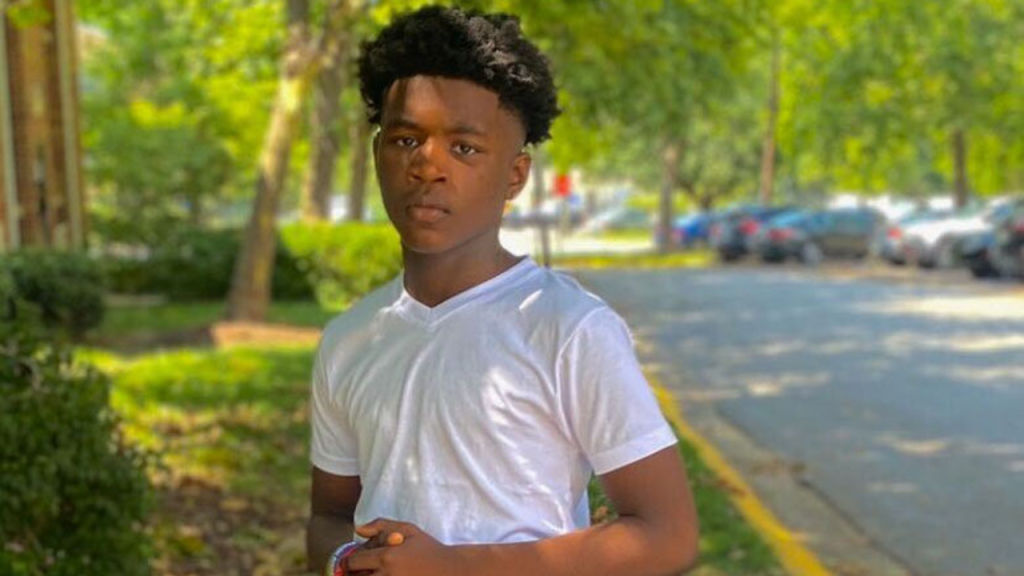
A fourth man has now been sentenced for his role in the tragic 2020 killing of 13-year-old Malachi Lukes, closing a painful chapter for the family and community who have waited years for justice. Aaron Brown, 29, of Washington, D.C., was sentenced to 18 years in prison after being found guilty of assault with intent to kill while armed.
The sentencing took place in D.C. Superior Court on May 30, 2025. Brown’s conviction stems from a deadly ambush-style shooting that occurred on March 1, 2020, when Lukes and his friends were walking toward a basketball court in the Shaw neighborhood of Northwest D.C.
According to court records, a group of men, including Brown, tracked the boys using a stolen car. Two individuals exited the vehicle and opened fire with high-powered firearms, striking Malachi and another teenager. Lukes died at the scene from a gunshot wound to the back. The shooting took place in broad daylight and stunned the community.
Brown is the final defendant to be sentenced in the case, joining three others who previously received severe prison terms for their involvement.
The Other Sentencings
Earlier court rulings handed down significantly harsher penalties to Brown’s co-defendants:
- Tyiion Freeman, 25, was sentenced in 2023 to 108 years in prison. He was one of the shooters who opened fire on the boys that day.
- Koran Jackson, 24, received a 164-year prison sentence in 2024 for his role in the shooting spree that culminated in Lukes’ death.
- Stephon Nelson, 33, was the illegal gun supplier for the group. He was convicted and sentenced to 108½ years in prison in April 2024 for providing the weapons used in the murder.
The Department of Justice described the men’s actions as part of a “violent, reckless, and coordinated series of attacks” across D.C. that lasted over nine days. The shooting that killed Malachi was one of at least four carried out by the group. Prosecutors said the spree was rooted in longstanding rivalries between neighborhoods, driven by retaliation and personal grudges.
A Targeted Ambush
Surveillance footage and cell phone data played a crucial role in tracking the suspects. Investigators revealed that the assailants drove a stolen silver Toyota Camry to the scene, tailing Lukes and his friends. Jackson and Freeman exited the vehicle and fired more than 20 rounds at the group.
Lukes, an eighth-grader at the time, was struck in the back while trying to flee. He collapsed near the corner of 10th and K Street NW. Another boy suffered non-fatal injuries.
Authorities linked the group to other shootings in Columbia Heights, Park View, and Petworth neighborhoods, all in the days leading up to Malachi’s murder. In total, investigators tied the crew to at least four separate shootings in the Northwest quadrant of the city.
According to the Metropolitan Police Department, the gang’s behavior reflected “a terrifying disregard for human life,” endangering not just their targets but the entire community.
The Community’s Grief
The killing of Malachi Lukes rocked the D.C. area and led to increased calls for violence prevention and community investment in youth programs. His family described him as a bright and happy child who loved basketball and aspired to do great things in life. His death left a void that his parents and teachers say will never be filled.
During the trial, heartbreaking testimony from Lukes’ mother reminded the courtroom of the lasting emotional toll. “They didn’t just kill my son,” she said. “They stole a future.”
The U.S. Attorney’s Office for the District of Columbia, alongside D.C. police, worked for years to bring everyone involved to justice. The sentencing of Aaron Brown is seen as a final step in that legal journey.
Guns, Gangs, and D.C.’s Ongoing Fight
This case highlighted the ongoing issue of illegal firearms in Washington, D.C. Officials have reiterated the need for stronger gun control enforcement, youth outreach, and intervention programs that prevent these acts before they begin.
Brown, unlike the other defendants, did not personally fire a weapon but was convicted for aiding and facilitating the attack. His 18-year sentence reflects his involvement in planning and supporting the fatal shooting.
